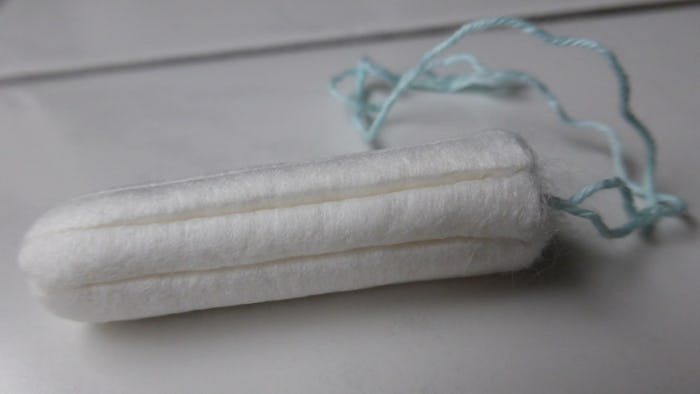As most women know, there's a plethora of information out there about women's health, their bodies, and their experiences. Between birth control, gynecological conditions, pregnancy, and much more, it can be difficult to cut through the cacophony of voices to determine what's really true and what's blatantly wrong. ( Or, at least, a misunderstanding or misinterpretation of the facts.) Even women who've have menstruated for years can find themselves still believing what they were taught long ago. That's why it's important to seek out the pieces of outdated period advice to ignore so you can actually get through your time of the month.
If you've had your period for years, you probably think you know it all. You can recognize warning signs and prepare for the upcoming week of pain and annoyances like a pro. Basically, you've got it down. There are things, however, that many women share and accept as true when it comes to periods, that probably aren't. Can't get pregnant on your period? If you swim in the ocean while you're on your period you'll attract sharks? Here are some outdated bits and pieces of period advice that you can ignore, because not all advice is good advice.
1You Can't Get Pregnant When You're On Your Period
It seems that many women were given this advice at one point or another. Technically speaking, that's not true. In an email exchange with Romper, a representative for the period-tracking app Clue, says that even though you're unlikely to get pregnant while on your period, it's not a complete impossibility. If you're having sex while on your period and want to do your best to make sure you don't get pregnant, it's still a good idea to use protection.
2It's Never Healthy To Skip Your Period
Some women don't get their period every month due to birth control use, medical issues, or for some other reason. And it's not necessarily dangerous or a bad thing. "When patients come to [me] for help with their birth control, they are usually shocked when I talk to them about the option to use birth control to skip their periods," pharmacist Sally Rafie tells Romper by email. Skipping your period safely can be perfectly fine, though it still might be best to speak with your doctor if you're concerned.
3Your Period Cleanses Your Body
Contrary to popular belief, having your period doesn't make your body cleaner. Similarly, if you skip your period you won't have a, "buildup of blood or toxins," as Rafie says. OB-GYN Dr. Amir Marashi agrees, telling Romper that, "the women's system is not getting clean[ed] up with the period." Next time someone tells you that periods rid the body of toxins, set the record straight.
4You Can't Swim While On Your Period
Beyond the fact that, according to Mother Jones, you won't attract sharks while on your period, it's not unhygienic to swim in a public pool while you're menstruating. If you did somehow release a small amount of blood while swimming in a swimming pool, a combination of the amount of water diluting it and the chemical treatments designed to prevent the spread of disease should still make it safe for everyone, including you.
5Skip The Inversions At Yoga If You're Menstruating
If you've ever taken a yoga class that involved inversions, you may have heard your teacher caution women who are menstruating from flipping upside down. In an interview with Women's Health, however, OB-GYN Dr. Maria Sophocles said that inversions won't actually have any effect on your period. Go ahead and get into that headstand, girl.
6Don't Go Camping If You're Menstruating
According to a paper published by the National Park Service, grizzly and black bears are not more attracted to menstrual blood than other things, meaning that you'll probably be safe while camping while on your period. Polar bears, however, apparently are.
7Normal Periods Last A Week
According to the website for Obstetrics & Gynecology Indiana, not all periods last a week. The normal range for how long your period should last is three to eight days, so don't stress too much if you've been told that "normal" is one week.
